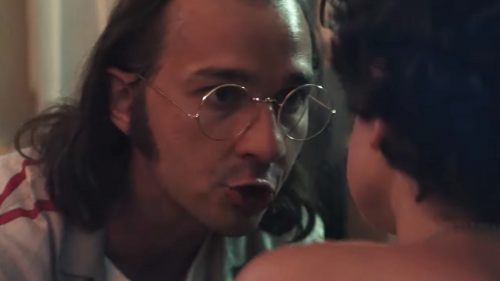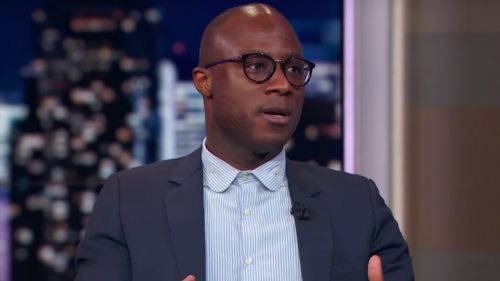TCFF Review: IF BEALE STREET COULD TALK Is A Perfect Marriage Of Auteur And Adaptation
This review is coverage for Twin Cities Film Fest.
In 2016, Moonlight absolutely blew me away. It felt like a major revelation, a story of queer hope and struggle built on a foundation of love and empathy, and I was hungry for whatever writer-director Barry Jenkins had up his sleeve next. When it was announced that his next film would be an adaptation of James Baldwin’s If Beale Street Could Talk, my excitement only grew, since Baldwin’s oft-thought unfilmable novel felt like a perfect match for Jenkins’ sweeping overtures to black relationships and the forces that seek to tear them apart. And was that faith rewarded? Yes. But also perhaps not to the same extent as Moonlight, which is an unfair comparison at best but is also the standard of expectation many audiences will be approaching this film with. Make no mistake, though: If Beale Street Could Talk is still one of the most heartfelt cinematic embraces of the year, born of the kind of love and empathy the world could use right about now.
For those unfamiliar with Baldwin’s novel, If Beale Street Could Talk is the story of a young couple, their families, and their community. Tish (KiKi Layne) is nineteen and pregnant with her twenty-two-year-old boyfriend Fonny’s (Stephan James) child, news she has to deliver to him through the glass of a prison visitation booth. Fonny has been accused of raping a woman across the city, a physical impossibility given his alibi and where he was arrested, but this is of no concern to a district attorney who trusts the word of the arresting officer and the coerced identification from the victim. With no money to their names, Tish’s and Fonny’s families work to pay for criminal defense and investigation to get Fonny out of prison, while Tish’s love and the promise of a new life in this world are the only things keeping Fonny fighting.
The reason the novel has been so often thought unadaptable is largely due to its ethereal structure, slipping between past and present without ceremony and relying on the stream of emotion to carry the weight of Baldwin’s narrative through every successive revelation. Jenkins isn’t perfect in his aim to faithfully convert this wandering style into smooth cinematic experience, as occasionally transitions between unofficial chapters feel jarringly abrupt, but overall this film understands that the core of the story is in watching two people fall in love, then stay in love despite a justice system designed to persecute black men for the simple crime of existing. Though this story takes place in the 1970s, almost nothing about it feels cemented to that period, making the film unstuck in time both narratively and metatextually. This is a system of prosecution we never evolved beyond, and it’s only through the power of love that Tish, Fonny, their families, and every black community on every Beale Street in every city of America have survived.
This is where Jenkins makes for the perfect fit to Baldwin’s humanism, as he paints his masterpiece in broad strokes of emotion over the close-up center-frame shots of his performers. Just as often as we see Tish, Fonny, or their friends and family speaking to each other across the frame, we see them staring out at us in the audience, so we have to experience directly what each of them are feeling and experiencing as we have no choice but to look them in the eyes. These are imperfect people, with their own sets of prejudices and issues with one another, but there is a persistent recognition in one another’s humanity that stands in direct defiance to the stereotypes and systems designed to prevent black excellence from succeeding. You see this in the way moments of intense emotional unloading are diffused with snide commentary, never letting go of the trauma but recognizing the need to laugh in a world that doesn’t want you to. More than anything, Jenkins understands love as a mechanism for survival and as a force that prevails even when all else is lost.
If Beale Street Could Talk might be the lesser film in relation to Moonlight, but if, like me, you were a new convert to the cinema of Barry Jenkins, that shouldn’t dissuade you from seeking this one out. Jenkins has here achieved the seemingly impossible in adapting unassailable prose through the raw power of love, and now more than ever that feels exceedingly appropriate. The faithfulness to the structure of James Baldwin’s work may be Beale Street’s weakness, but the faithfulness to his empathetic spirit is a strength not to be taken lightly.



